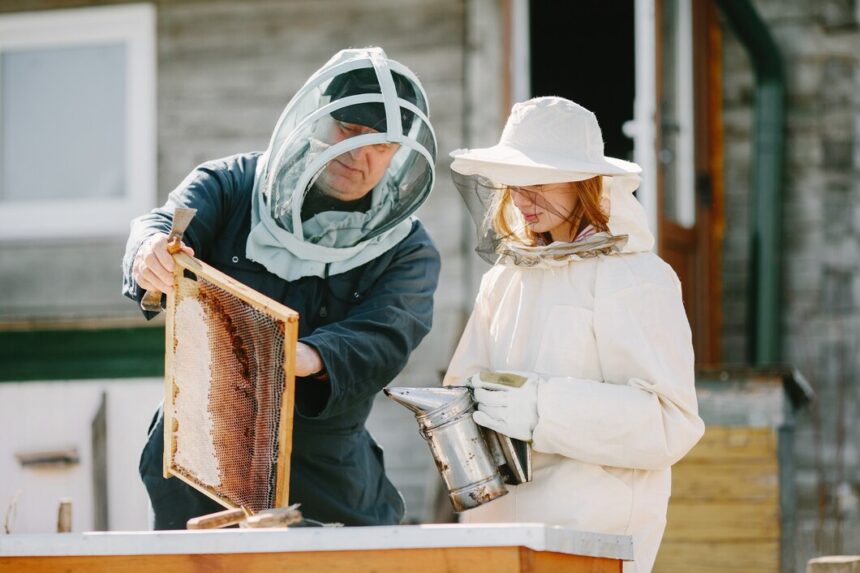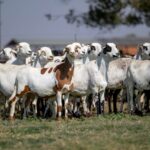Beekeeping, or apiculture, is a rewarding venture that can significantly benefit South African farmers. Not only does it provide honey and other bee products, but it also plays a crucial role in pollination, enhancing crop yields and promoting biodiversity. For beginners, starting a beekeeping operation can seem daunting, but with the right guidance, it can be an enjoyable and profitable endeavor. Here are some essential tips and advice for South African farmers looking to start beekeeping.
1. Understand the Importance of Bees
Bees are vital pollinators for many crops, contributing to the production of fruits, vegetables, and nuts. By integrating beekeeping into your farming operation, you can improve the health of your crops while benefiting from honey production. Understanding the role of bees in the ecosystem will help you appreciate their value and motivate you to care for them effectively.
2. Research Local Regulations
Before starting your beekeeping venture, familiarize yourself with local regulations and requirements in South Africa. Different provinces may have specific rules regarding hive placement, registration, and health inspections. Contact local agricultural authorities or beekeeping associations for guidance on compliance.
3. Choose the Right Location
Selecting an ideal location for your beehives is crucial. Look for areas with abundant flowering plants, access to water sources, and protection from strong winds. Ensure the location is away from heavy foot traffic and areas where people congregate to minimize potential conflicts.
4. Invest in Quality Equipment
To start beekeeping, you will need essential equipment, including:
- Beehives: Langstroth hives are commonly used and easily accessible. Ensure you purchase durable, well-constructed hives.
- Protective Gear: Invest in a bee suit, gloves, and a veil to protect yourself while working with the bees.
- Tools: A smoker, hive tool, and bee brush are essential for managing the hive and inspecting the bees.
5. Choose the Right Bee Species
Selecting the right bee species is vital for success. The African honey bee (Apis mellifera scutellata) is well-suited to South Africa’s climate and has excellent foraging capabilities. However, it can be more aggressive than other breeds. If you prefer a gentler breed, consider Italian or Carniolan bees, which are also suitable for South African conditions.
6. Start with a Single Hive
As a beginner, start with one or two hives to learn the basics of beekeeping. This approach allows you to gain experience without overwhelming yourself. Monitor the hive regularly to understand bee behavior and management practices.
7. Learn Bee Management Techniques
Understanding basic bee management techniques is crucial for maintaining healthy hives. Key practices include:
- Regular Inspections: Check hives every 7-10 days during the active season to monitor for signs of disease, pests, and overall health.
- Swarm Management: Learn how to prevent and manage swarming, which can lead to the loss of bees.
- Feeding Bees: Supplement food when necessary, especially during times of nectar dearth or harsh weather conditions.
8. Be Aware of Pests and Diseases
Familiarize yourself with common pests and diseases affecting bees, such as Varroa mites, American foulbrood, and nosema. Regular inspections and good hive management practices will help mitigate these risks. Seek advice from local beekeeping associations for pest management strategies.
9. Harvest Honey Responsibly
Once your hive is established, you may begin to harvest honey. Wait until the honey frames are fully capped before extraction. Use a honey extractor to collect honey without damaging the comb. Be sure to leave enough honey for the bees to sustain themselves, especially during winter.
10. Join a Beekeeping Community
Engaging with local beekeeping associations or clubs can provide valuable support and resources. Networking with experienced beekeepers will offer insights, mentorship, and opportunities for hands-on learning. Many associations also organize workshops and events, providing a great platform for knowledge exchange.
Beekeeping can be a fulfilling and profitable venture for South African farmers, enhancing both agricultural productivity and environmental sustainability. By starting small, investing in quality equipment, and continuously learning about bee management, beginners can cultivate a successful beekeeping operation. With the proper knowledge and support, you can contribute to the well-being of bees while reaping the rewards of honey production and improved crop yields.
Join 'Farmers Mag' WhatsApp Channel
Get the latest Farming news and tips delivered straight to your WhatsApp
CLICK HERE TO JOIN






